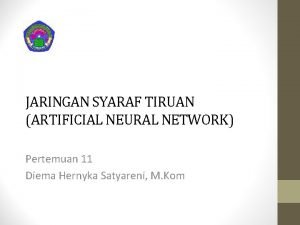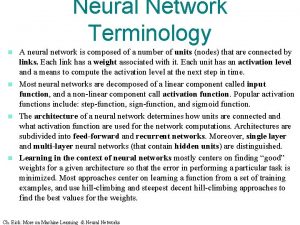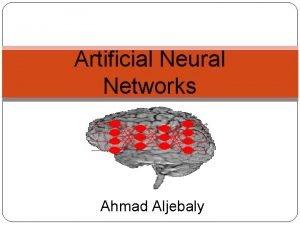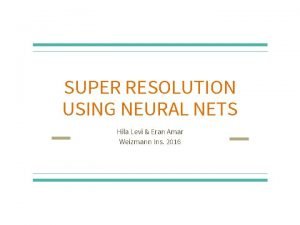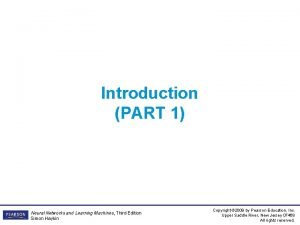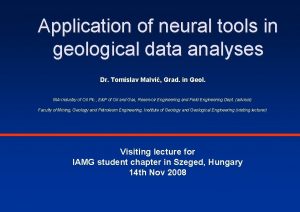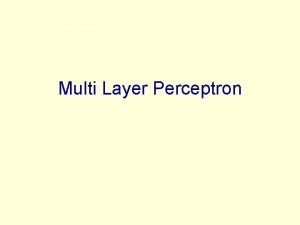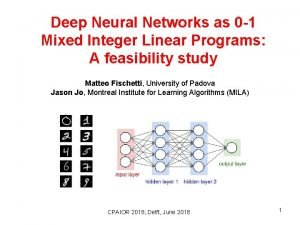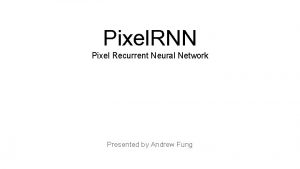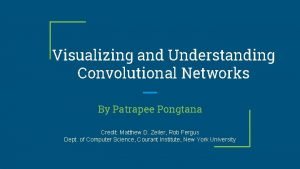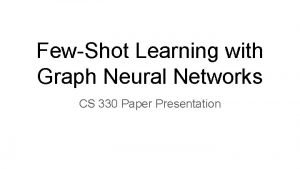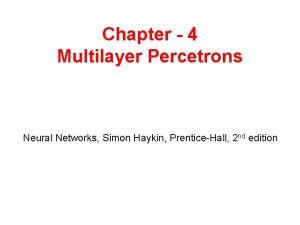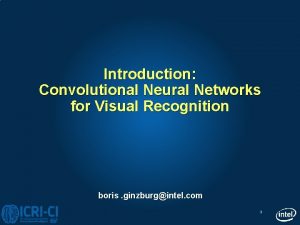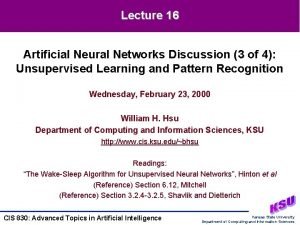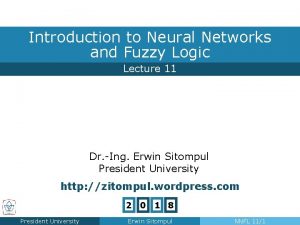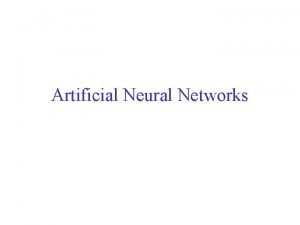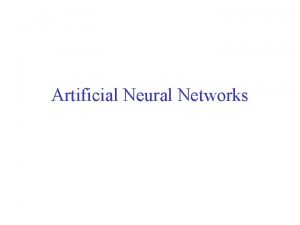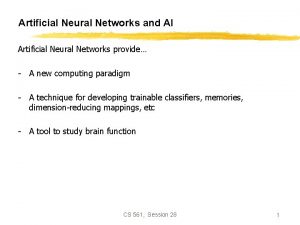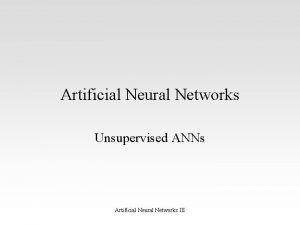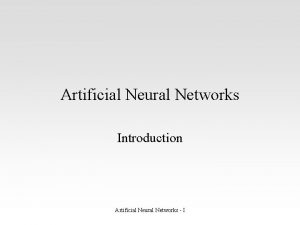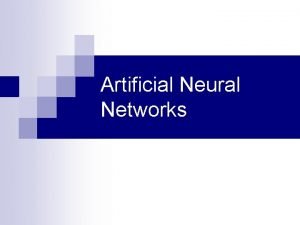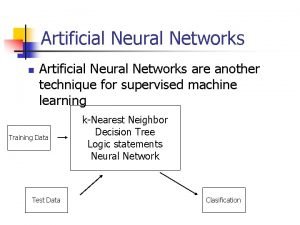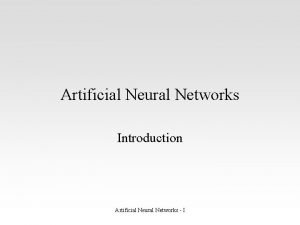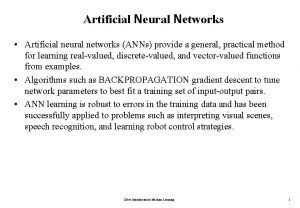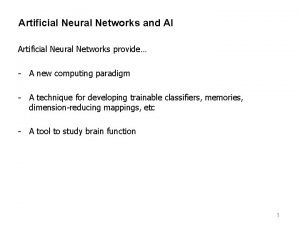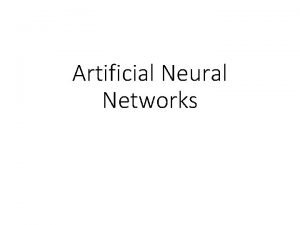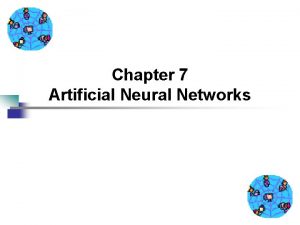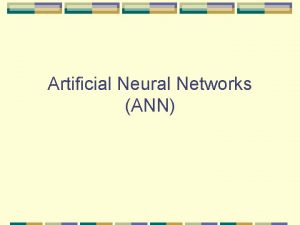Artificial Neural Networks n Artificial Neural Networks are
















- Slides: 16

Artificial Neural Networks n Artificial Neural Networks are (among other things) another technique for supervised learning Training Data Test Data k-Nearest Neighbor Decision Tree Neural Network Classification

Human neuron n n Dendrites pick up signals from other neurons When signals from dendrites reach a threshold, a signal is sent down axon to synapse

Connection with AI n Most modern AI: n n Implementing neurons in a computer n n “Systems that act rationally” “Systems that think like humans” Why artificial neural networks then? n n “Universal” function fitter Potential for massive parallelism Some amount of fault-tolerance Trainable by inductive learning, like other supervised learning techniques

Perceptron Example # of tumors 1 = malignant 0 = benign w 1 = -0. 1 Output Unit w 2 = 0. 9 Avg area Avg density w 3 = 0. 1 Input Units

The Perceptron: Input Units n n Input units: features in original problem If numeric, often scaled between – 1 and 1 If discrete, often create one input node for each category Can also assign values for a single node (imposes ordering)

The Perceptron: Weights n n n Weights: Represent importance of each input unit Combined with input units to feed output units The output unit receives as input:

The Perceptron: Output Unit n n The output unit uses an activation function to decide what the correct output is Sample activation function:

Simplifying the threshold n Managing the threshold is cumbersome n Incorporate as a “virtual” weight

How to learn the right weights? n Need to redefine perceptron n n “Step function” no good – need something differentiable Replace with sigmoid approximation

Sigmoid function n Good approximation to step function As b infinity, sigmoid step We’ll just take b = 1 for simplicity

Computing weights n Think of as a gradient descent method, where weights are variables and trying to minimize error:

The Perceptron Learning Rule: How do we compute weights?

Can appropriate weights always be found? n ONLY IF data is linearly separable

What if data is not linearly separable? Neural Network. O Vj n n Each hidden unit is a perceptron The output unit is another perceptron with hidden units as input

Backpropagation: How do we compute weights?

Neural Networks and machine learning issues n n n Neural networks can represent any training set, if enough hidden units are used How long do they take to train? How much memory? Does backprop find the best set of weights? How to deal with overfitting? How to interpret results?
 Mikael ferm
Mikael ferm Pengertian artificial neural network
Pengertian artificial neural network Artificial neural network in data mining
Artificial neural network in data mining Artificial neural network terminology
Artificial neural network terminology Artificial neural network conclusion
Artificial neural network conclusion Audio super resolution using neural networks
Audio super resolution using neural networks Neural networks and learning machines
Neural networks and learning machines Neuraltools neural networks
Neuraltools neural networks Input layer
Input layer Deep neural networks and mixed integer linear optimization
Deep neural networks and mixed integer linear optimization Pixel rnn
Pixel rnn Visualizing and understanding convolutional neural networks
Visualizing and understanding convolutional neural networks Few shot learning with graph neural networks
Few shot learning with graph neural networks Neural networks simon haykin
Neural networks simon haykin Convolutional neural networks for visual recognition
Convolutional neural networks for visual recognition The wake-sleep algorithm for unsupervised neural networks
The wake-sleep algorithm for unsupervised neural networks Neural networks and fuzzy logic
Neural networks and fuzzy logic

